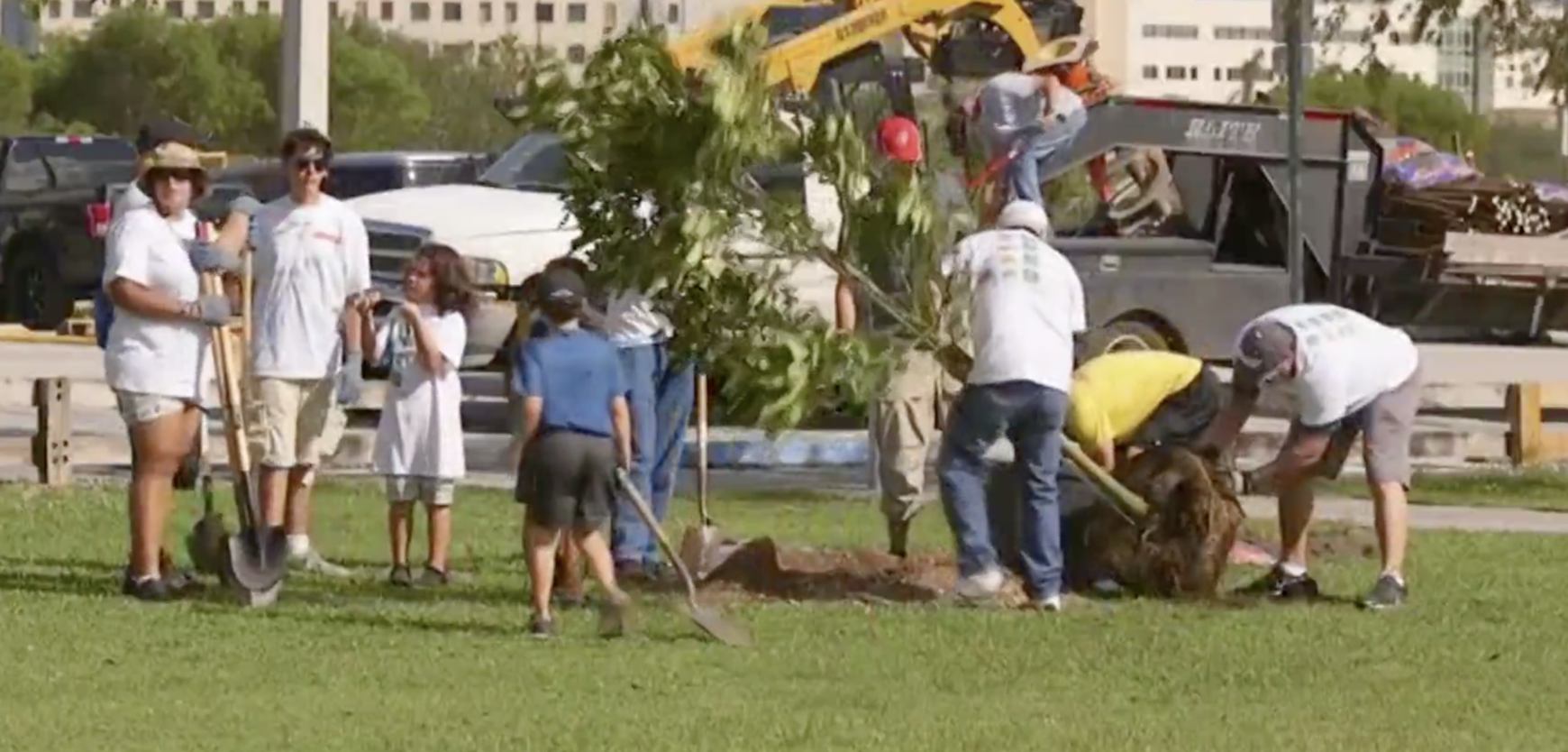Million Trees Miami Wants To Rebuild Our Community’s Tree Canopy. What Exactly Does That Mean?

Back in 2011 Million Trees Miami established one clear goal: achieve 30 percent tree canopy coverage, which is indicative of a healthy urban environment. But how did we get to this point, and what has changed since they started?
Let’s start from the beginning. Million Trees Miami is an initiative of Neat Streets Miami, a county board chaired by Commissioner Dennis C. Moss. Its goal is to plant 1 million trees in Miami-Dade County.
“However, now with Hurricane Irma we lost a lot of those trees,” said Jennifer Llorente, special projects administrator for Neat Streets Miami. “Based on the [2016] Urban Tree Canopy Assessment, Miami-Dade County has a 20 percent tree canopy, much lower than the 30 to 40 percent national targets for healthy urban areas. We are in the process of updating the assessment post-Hurricane Irma.”
The assessment is used by Neat Streets Miami to target where to plant. They identify low tree canopy areas, which Llorente said are usually also low-income areas.
A substantial tree canopy has numerous, tangible benefits for cities and the people who live there. Urban forests help reduce a variety of health issues by cleaning the air and promoting active lifestyles. Plus, canopies actually cool cities. Llorente said trees increase property values and job performance and satisfaction, too, while reducing energy costs. And research has shown the presence of trees can help reduce crime in a neighborhood. Equity is still a problem, though.
“Distribution of trees is very uneven, and that’s something we want to promote,” Llorente said. “We want to plant in these low canopy areas. It’s about community building and empowering communities.”
Neat Streets Miami, in partnership with several other organizations and businesses, is working to rebuild and increase the canopy across the county through a variety of programs.
First, Neat Streets Miami does a lot on their own to plant trees. The group has a Street Tree Matching Grant Program, which it uses as a way to get other municipalities involved. The grant – funded by Miami-Dade County – encourages groups to plant native or Florida-friendly trees on the county’s corridors, gateways and local streets.
“In the program’s third year, 14 grants up to $25,000, and totaling $250,000, have been awarded to communities that demonstrate the greatest benefits for residents, employers and visitors, and can provide a stewardship plan for our joint investment,” Llorente said.
Preference is given to applicants with projects located in low canopy areas and for underserved populations.
Growing Green Playgrounds and Growing Green Bus Stops are initiatives targeting unsafe conditions by planting shade trees. Miami-Dade County identified several playgrounds with unsafe surface temperatures ranging from 142 to 164 degrees Fahrenheit. Planting trees around playgrounds not only addresses safety concerns, but also connects youth to nature, improves quality of life for the entire community, increases property values and improves biodiversity.
Growing Green Bus Stops starts with creating cooler waiting areas by planting shade trees.
“A lot of our bust stops just have a pole, and that’s it,” Llorente said. “Often you’ll see people waiting across the street under a tree because it’s so hot. We’re able to really change that bus waiting experience. It’s more comfortable and more inviting for bus riders.”
But it doesn’t stop there. Canopy trees enhance resident commutes through beautification and greening, pollution absorption, wind protection, noise pollution reduction and storm water retention.
Though Hurricane Irma uprooted some of the progress that was made, the Arbor Day Foundation partnered with Neat Streets Miami in their Community Tree Restoration Program. The foundation targets communities that were ravaged by hurricanes and helps those communities put trees back in the ground. Through the partnership, Neat Streets and Million Trees Miami are able to give away 500 to 1,000 trees a couple of times a year.
There are also tree plantings throughout the year in partnership with One Tree Planted, American Forests and companies like Bacardi and Coca Cola.
“Those collaborations are really important,” Llorente said. “They’re normally employee stewardship programs. The volunteers are actually employees. It’s a win-win for both the company and [Miami-Dade County] Parks, Recreation and Open Spaces.”
#Tree05 is Neat Streets Miami’s latest initiative to engage residents and get them to think about trees. FedEx and Verizon sponsored a January tree giveaway for #Tree05 in partnership with the Arbor Day Foundation. Learn more about the urban tree canopy and how you can protect it.